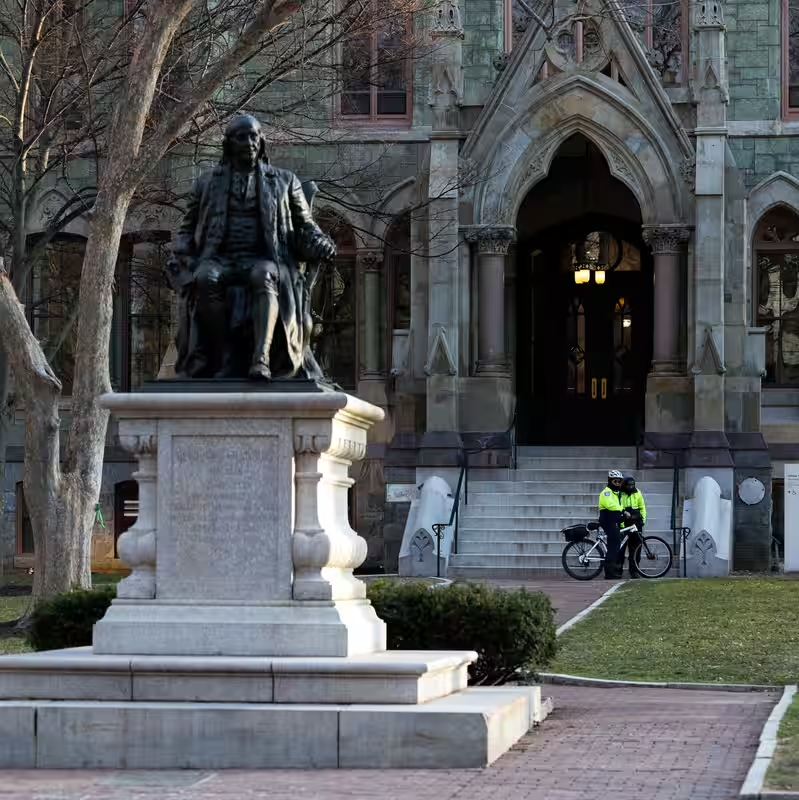Table of Contents
- What Was the White House’s ‘Compact for Academic Excellence’?
- Penn and USC Say No—Here’s Why
- Faculty, Governors, and Scholars Push Back
- Which Schools Are Saying Yes—or No?
- The Billionaire Behind the Proposal
- Sources
What Was the White House’s ‘Compact for Academic Excellence’?
The Trump administration’s latest higher education initiative—dubbed the “Compact for Academic Excellence in Higher Education”—promised preferential access to federal research funding in exchange for sweeping campus reforms. Among its key demands: capping international student enrollment, freezing tuition, and implementing policies to “protect conservative voices” on campus.
Though labeled voluntary, critics argue the compact effectively creates a two-tiered system: universities that comply get rewarded; those that don’t risk losing critical federal support. The proposal was sent to nine elite institutions, including Ivy League schools and major public research universities.
Penn and USC Say No—Here’s Why
On Thursday, October 16, 2025, the University of Pennsylvania and the University of Southern California became the latest—and most prominent—institutions to reject the deal.
In a campus-wide message, Penn President J. Larry Jameson confirmed he had informed Education Secretary Linda McMahon that the university would not sign the compact. He cited “substantive concerns” despite acknowledging some areas of alignment with the administration’s goals.
USC’s interim president, Beong-Soo Kim, echoed similar reservations. In his letter to McMahon, Kim wrote: “We are concerned that even though the compact would be voluntary, tying research benefits to it would, over time, undermine the same values of free inquiry and academic excellence that the compact seeks to promote.”
Faculty, Governors, and Scholars Push Back
The backlash wasn’t limited to administrators. At Penn, the local chapter of the American Association of University Professors had circulated a petition opposing the compact, calling it a threat to intellectual independence. After the rejection was announced, they said they were “proud” of the university’s stance.
Pennsylvania Governor Josh Shapiro, a Democrat and nonvoting member of Penn’s board of trustees, publicly praised the decision, labeling the White House proposal “dangerous.”
Earlier this week, MIT President Sally Kornbluth and Brown University President Christina H. Paxson also declined to participate. Kornbluth warned the compact was “inconsistent with our core belief that scientific funding should be based on scientific merit alone,” while Paxson said it would “critically compromise” Brown’s autonomy.
Which Schools Are Saying Yes—or No?
So far, four universities have formally rejected the compact:
- Massachusetts Institute of Technology (MIT)
- Brown University
- University of Pennsylvania
- University of Southern California
The University of Texas at Austin has signaled it may consider the proposal, though no final decision has been announced. The White House has hinted the list of targeted schools could expand beyond the original nine.
A White House spokesperson doubled down Thursday, stating: “Any higher education institution unwilling to assume accountability and confront these overdue and necessary reforms will find itself without future government and taxpayer support.”
The Billionaire Behind the Proposal
Notably, the compact was shaped in part by Marc Rowan, a Penn alumnus and billionaire private equity executive. Rowan played a central role in the 2023 ousting of Penn’s former president and has been a vocal advocate for conservative campus reforms.
His involvement has fueled speculation that the compact is less about academic excellence and more about exerting ideological influence over elite institutions—a charge the administration denies but many academics fear is real.
Sources
Penn and U.S.C. Become Latest Universities to Reject White House Deal – The New York Times




